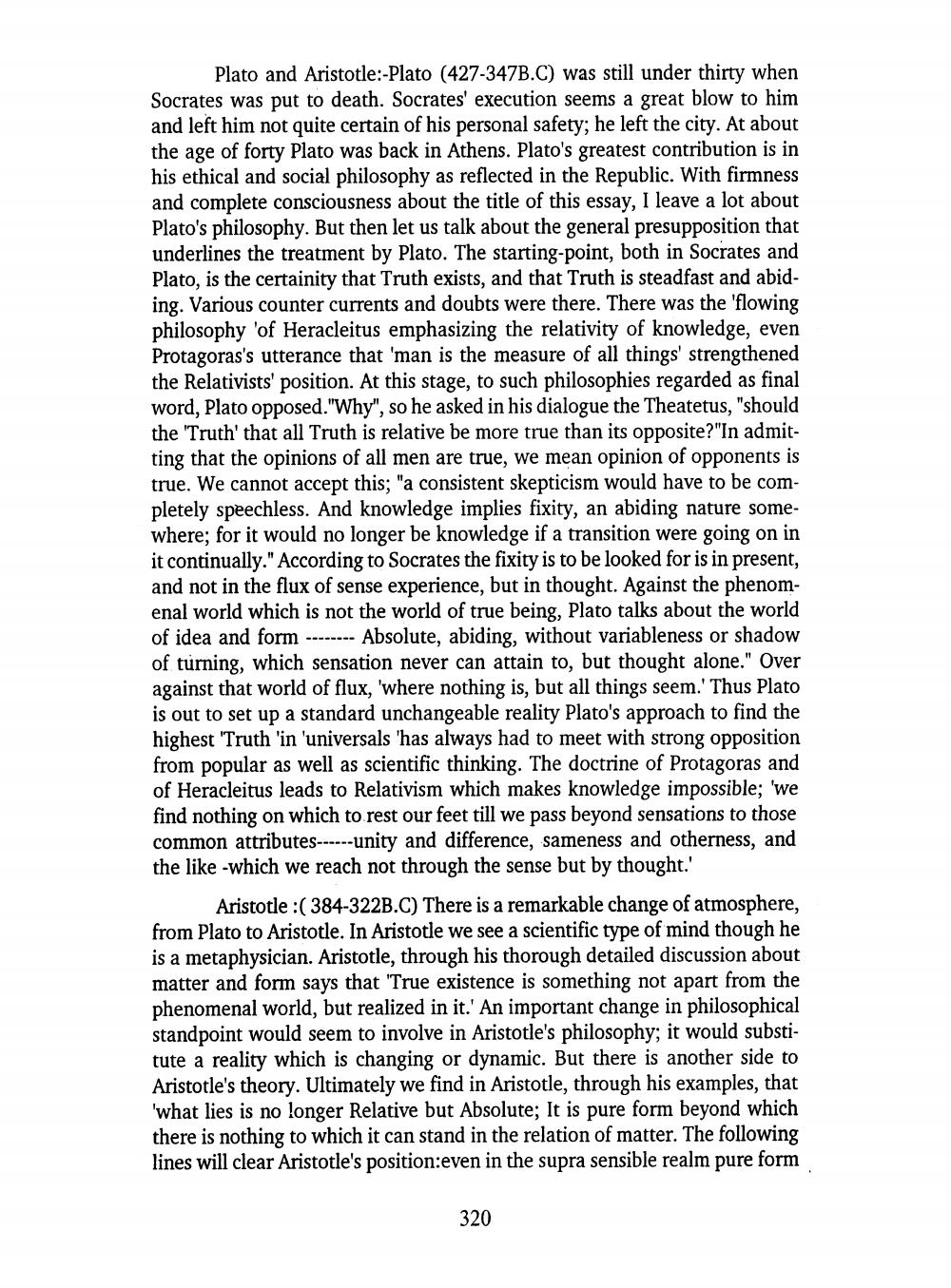________________
Plato and Aristotle:-Plato (427-347B.C) was still under thirty when Socrates was put to death. Socrates' execution seems a great blow to him and left him not quite certain of his personal safety; he left the city. At about the age of forty Plato was back in Athens. Plato's greatest contribution is in his ethical and social philosophy as reflected in the Republic. With firmness and complete consciousness about the title of this essay, I leave a lot about Plato's philosophy. But then let us talk about the general presupposition that underlines the treatment by Plato. The starting point, both in Socrates and Plato, is the certainity that Truth exists, and that Truth is steadfast and abiding. Various counter currents and doubts were there. There was the 'flowing philosophy 'of Heracleitus emphasizing the relativity of knowledge, even Protagoras's utterance that 'man is the measure of all things' strengthened the Relativists' position. At this stage, to such philosophies regarded as final word, Plato opposed. "Why", so he asked in his dialogue the Theatetus, "should the 'Truth' that all Truth is relative be more true than its opposite?"In admitting that the opinions of all men are true, we mean opinion of opponents is true. We cannot accept this; "a consistent skepticism would have to be completely speechless. And knowledge implies fixity, an abiding nature somewhere; for it would no longer be knowledge if a transition were going on in it continually." According to Socrates the fixity is to be looked for is in present, and not in the flux of sense experience, but in thought. Against the phenomenal world which is not the world of true being, Plato talks about the world of idea and form ------- Absolute, abiding, without variableness or shadow of turning, which sensation never can attain to, but thought alone." Over against that world of flux, 'where nothing is, but all things seem.' Thus Plato is out to set up a standard unchangeable reality Plato's approach to find the highest 'Truth 'in 'universals 'has always had to meet with strong opposition from popular as well as scientific thinking. The doctrine of Protagoras and of Heracleitus leads to Relativism which makes knowledge impossible; 'we find nothing on which to rest our feet till we pass beyond sensations to those common attributes------unity and difference, sameness and otherness, and the like - which we reach not through the sense but by thought.'
Aristotle :(384-322B.C) There is a remarkable change of atmosphere, from Plato to Aristotle. In Aristotle we see a scientific type of mind though he is a metaphysician. Aristotle, through his thorough detailed discussion about matter and form says that 'True existence is something not apart from the phenomenal world, but realized in it.' An important change in philosophical standpoint would seem to involve in Aristotle's philosophy; it would substitute a reality which is changing or dynamic. But there is another side to Aristotle's theory. Ultimately we find in Aristotle, through his examples, that 'what lies is no longer Relative but Absolute; It is pure form beyond which there is nothing to which it can stand in the relation of matter. The following lines will clear Aristotle's position:even in the supra sensible realm pure form
320




